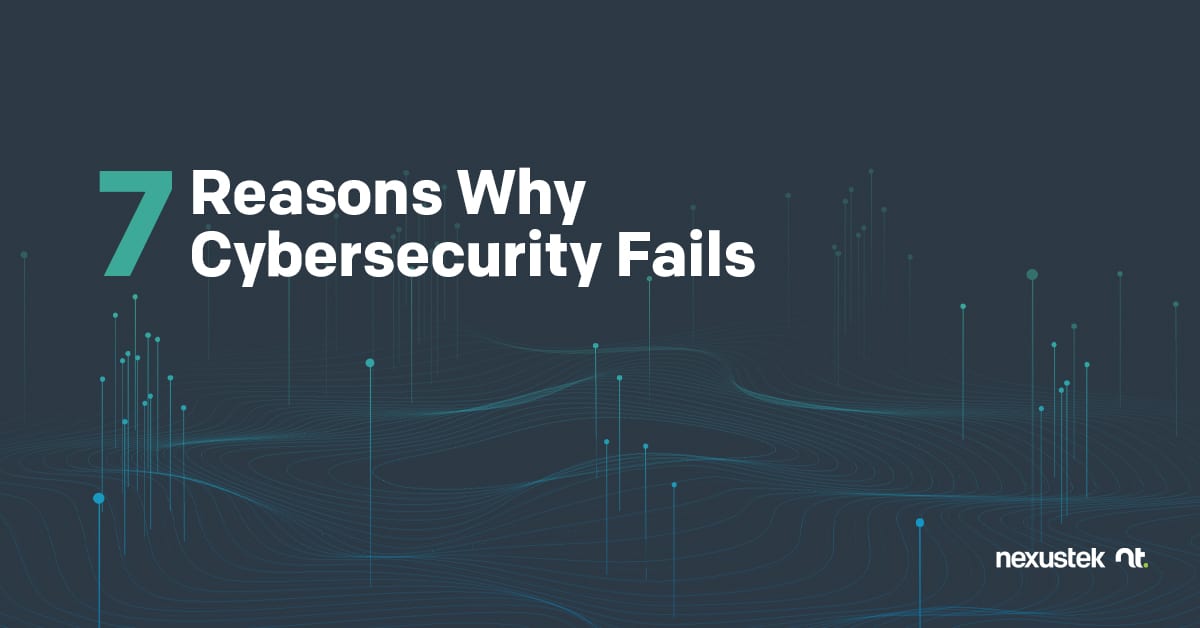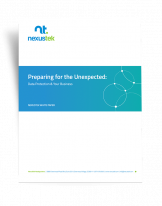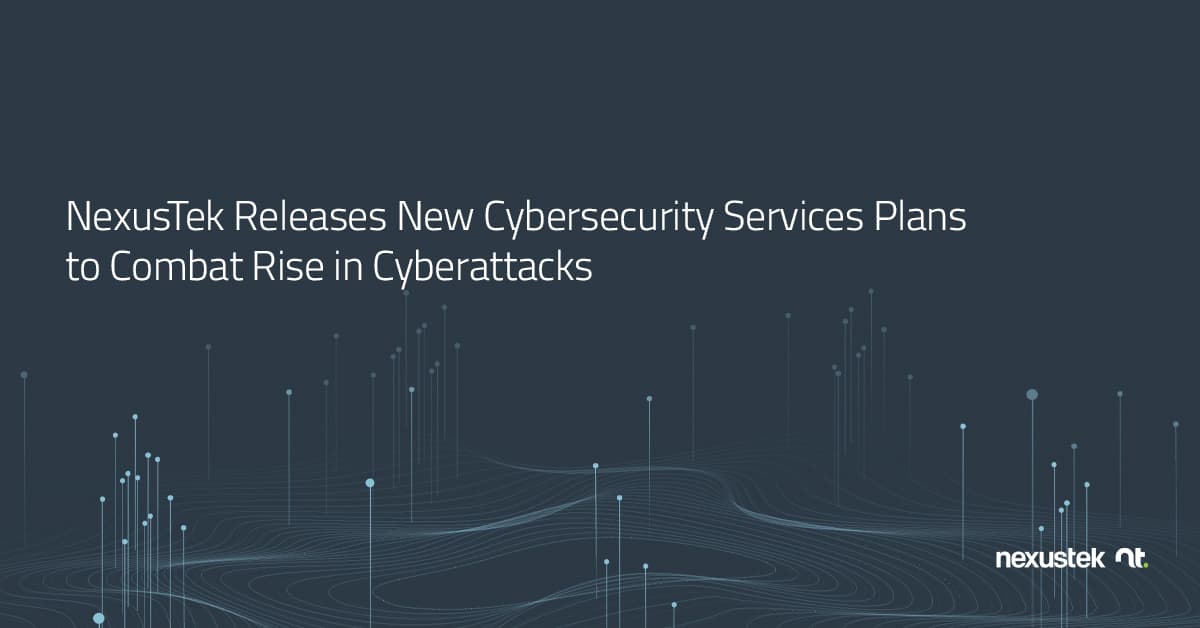READ TIME: 5 MIN

7 Reasons Why Cybersecurity Fails
- An expensive data breach
- The average cost was $3.86 million in 2020.
- Exposure of employee and customer information
- 36 billion records were exposed from data breaches in the first half of 2020.
- Hijacking of important business data
- The average ransomware payment rose 33% in 2020 to over $100,000.
- Halting of daily operations for days on end
- 40% of small businesses experienced eight or more hours of downtime due to a cyber breach.
1. You assume your business is too small to be a target.
2. You have an incomplete inventory of assets and endpoints.
3. You set it, and then you forget it.
4. You neglect completing patches and upgrades in a timely manner.
5. You’re not actively monitoring your IT infrastructure for threats.
6. You don’t realize your greatest liability is your own employees.
7. You don’t have an incident response plan.
Preventing Cybersecurity Failure
Essential Plan:
This managed protection plan offers 24/7/365 monitoring and alerts with managed cybersecurity and an annual security health review for a crucial foundation of defense.
Standard Plan:
Building on the protective base of Essential Solutions, this managed protection and response plan adds proactive steps to fortify your business, including security awareness training, managed DNS security, vulnerability scanning, and incident response.
Advanced Plan:
For robust cybersecurity, this managed detection and response plan enhances a business’ security effectiveness with managed SIEM to detect malware, log correlation and aggregation to analyze malicious logins, and incident response to eliminate threats. A security health review is conducted each quarter to stay on top of vulnerabilities and their solutions.
Whatever your business security needs, NexusTek has the expertise to bring your cybersecurity up to snuff.







